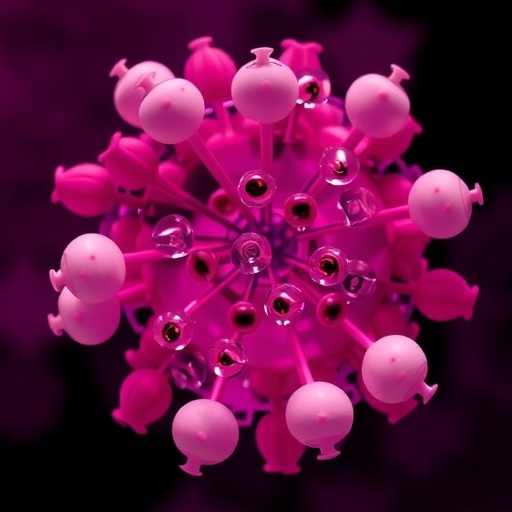In recent years, Gamma-Hydroxybutyrate (GHB) has drawn increasing attention due to its rising misuse and the challenges associated with its detoxification. An illuminating case study published by Muscat and Sant in the International Journal of Mental Health and Addiction offers a pioneering pharmacologic approach to GHB detoxification within a community setting, marking a significant advancement in addiction treatment paradigms. This exploration offers a deep dive into the complexities of GHB detox and unveils novel strategies that may redefine clinical practice.
GHB, a central nervous system depressant, has a notorious reputation for its recreational use, as well as its implication in cases of drug-facilitated sexual assault. It exerts its effects primarily through its agonism at GABA-B receptors and its structural similarity to the neurotransmitter GABA. While its euphoric and sedative properties attract users, chronic consumption leads to physiological dependence, requiring meticulously managed detoxification protocols to mitigate withdrawal risks such as severe agitation, tremors, and even life-threatening seizures.
Traditional approaches to GHB withdrawal have often mirrored those for alcohol or benzodiazepine detoxification. However, these methods frequently fall short due to remarkable differences in the pharmacodynamics and pharmacokinetics of GHB. The case study by Muscat and Sant underscores the inadequacy of these generic treatments and stresses the necessity for tailored pharmacotherapies that directly address GHB’s unique mechanisms of action.
One of the most compelling aspects of the reported case is the application of baclofen, a GABA-B receptor agonist, as an off-label pharmacologic agent. Baclofen’s role in managing GHB withdrawal is grounded in its ability to attenuate the hyperexcitability induced by abrupt cessation of GHB, thereby stabilizing neuronal activity. The study meticulously documents the titration schedules, dosing regimens, and patient responses, illuminating the therapeutic window within which baclofen optimally mitigates withdrawal symptoms without producing adverse effects.
Beyond baclofen, the utilization of adjunctive medications was a key facet of the detoxification strategy described. Agents targeting symptomatic relief—such as antiemetics, anxiolytics, and anticonvulsants—were judiciously incorporated, enhancing patient comfort and safety. These supportive therapies helped circumvent the pitfalls of monotherapy, underscoring a holistic pharmacologic protocol attuned to the multifaceted nature of GHB dependence.
Importantly, the case study did not adhere to an inpatient model but rather demonstrated successful detoxification within a community healthcare environment. This shift is significant, as it addresses the limitations of hospital-based detox programs, particularly their accessibility, cost, and stigma. By illustrating the feasibility and safety of outpatient detoxification with rigorous monitoring and pharmacologic management, the study paves the way for decentralized addiction treatment models which could improve outcomes and resource allocation.
From a neurochemical vantage point, the intricacies of GHB withdrawal manifest through perturbations in GABAergic and dopaminergic systems. The sudden absence of GHB disrupts homeostasis, leading to heightened neuronal excitability and dysregulated neurotransmitter release. Baclofen’s GABA-B agonism restores inhibitory tone and reduces excitotoxic damage, lending a mechanistic rationale for its efficacy documented in the community-based detox protocol.
Moreover, the paper discusses the pharmacokinetic challenges posed by GHB’s ultrashort half-life and rapid clearance, factors that complicate withdrawal management. Its rapid elimination necessitates frequent dosing or sustained-release pharmacologic agents to maintain neurochemical stability during detoxification. The study’s approach carefully balanced these dynamics, adjusting baclofen dosages in response to clinical signs and laboratory parameters, showcasing a nuanced understanding of GHB’s metabolic profile.
Clinicians have historically grappled with the unpredictability of GHB withdrawal severity and duration. Muscat and Sant’s case provides a valuable framework, highlighting patient monitoring strategies including symptom rating scales and gradual baclofen weaning processes. These insights enable individualized care plans that preemptively address relapse risk factors, bridging gaps in current detoxification standards.
Additionally, the paper contemplates broader implications for public health. The community-based pharmacologic detoxification model not only facilitates wider treatment access but also aligns with harm-reduction philosophies that emphasize patient autonomy and non-stigmatizing care. Such frameworks could be transformative in communities disproportionately affected by substance use disorders, fostering engagement and long-term recovery.
The success in this case study further prompts urgent calls for expanded clinical trials to validate baclofen’s role alongside other potential pharmacotherapies for GHB withdrawal. Future investigations will need to elucidate optimal dosing parameters, safety profiles, and integration with psychosocial interventions, refining evidence-based protocols that can be universally adopted.
In summary, this landmark case study by Muscat and Sant represents a critical step forward in the pharmacologic detoxification of GHB dependence within community settings. By leveraging baclofen’s targeted GABA-B receptor agonism and crafting a multidimensional treatment approach, the authors offer a robust template for clinicians navigating the complexities of GHB withdrawal. The implications extend beyond clinical management to encompass health policy, resource optimization, and patient-centered care models.
As GHB misuse continues to challenge addiction medicine, innovations like these provide renewed hope and actionable solutions. The insights gained not only enhance our understanding of GHB pharmacology but also reinforce the essential role of adaptive, science-informed strategies in addressing evolving substance use landscapes. This study heralds a new era of tailored community detoxification protocols that prioritize safety, efficacy, and accessibility, ultimately aiming to curb the growing public health burden of GHB addiction.
Subject of Research: Pharmacologic approaches to detoxification of Gamma-Hydroxybutyrate (GHB) dependence in community settings
Article Title: A Case Study Showing a Pharmacologic Approach to Gamma-Hydroxybutyrate (GHB) Detoxification in the Community
Article References:
Muscat, J., Sant, K. A Case Study Showing a Pharmacologic Approach to Gamma-Hydroxybutyrate (GHB) Detoxification in the Community. Int J Ment Health Addiction (2025). https://doi.org/10.1007/s11469-025-01588-x
Image Credits: AI Generated




